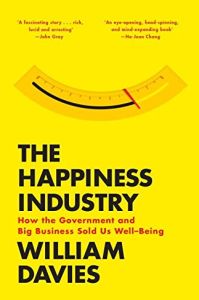Join getAbstract to access the summary!

Join getAbstract to access the summary!
William Davies
The Happiness Industry
How the Government and Big Business Sold Us Well-Being
Verso Books, 2016
What's inside?
Businesses and governments are turning happiness into a requirement.
Recommendation
Political economist William Davies, a lecturer at Goldsmiths, University of London, discusses the official obsession with happiness. Happy workers are more productive, but today’s workers aren’t happy. Their frequent absences and general apathy cost billions of dollars in lost productivity every year. Managers and policy makers respond with programs to boost happiness. They hire happiness consultants, create positions like “chief happiness officer” and monitor social media for spikes in sad words. In dispassionate prose spiced with moments of dry humor, Davies offers a detailed, dense and depressing look at the increasingly pervasive monitoring and manipulation of people’s moods. getAbstract suggests this contrarian view to managers, policy makers, entrepreneurs and those who prefer to determine for themselves how they feel – happy or not.
Summary
About the Author
Political economist William Davies is a senior lecturer at Goldsmiths, University of London, where he is co-director of the Political Economy Research Center. He has written for The Atlantic, The New York Times and The New Statesman.

















Comment on this summary